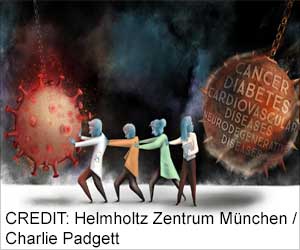Top universities such as Oxford University, University of Waterloo, University of Southampton, among others have established the importance of copper in fighting infectious diseases, especially COVID-19.
Copper or Tamra has been known for at least 5,000 years to store drinking water centuries as it is known to offer antimicrobial properties. Similarly, in ancient Egypt, Copper was used to combating sore throat and infections.
Copper and its alloys, such as brass, bronze, and others can eliminate or inactivate microbes, such as bacteria, fungi (including molds) that cause infectious diseases without human intervention.
Interestingly, in 2013, installation of copper alloy in touch surfaces of ICU pods in Tata Memorial Hospital revealed there was a significant reduction and difference in microbial bioburden (MB) on each of the surfaces in the areas installed with copper.
The touch surfaces included in each bed unit included footrails, bed rails, bed sider table, over the bed table, and Intravenous Fluids Stand. The analysis also showed a difference of bioburden on the touch surfaces between the two (2) ICU Pods with and without copper.
Being an airborne disease, COVID-19 is primarily transmitted through the exposure of droplets in the air as well as their accumulation on surfaces.
The study conducted by researchers from the University of Southampton also confirmed that Copper inactivates SARS-CoV-2 in 1 minute while surfaces that were made of plastics, glass, metal, etc. took hours to inactivate the virus.
A well-publicized study by van Doremalen et al. shows that the COVID-19 Coronavirus retains infectivity on a variety of common surfaces like plastic and 304 Stainless Steel for 48 to 72 hours. In contrast, it was inactivated in 4 hours on a 99.9% copper alloy.
Whether it is the ability to fight pathogens in the body via the bloodstream, through water-borne infections, or transmission of pathogens through external surfaces, Copper is one of the most efficient metals that curb the transmission of potentially menacing viral infections including COVID-19.
Source: Medindia



